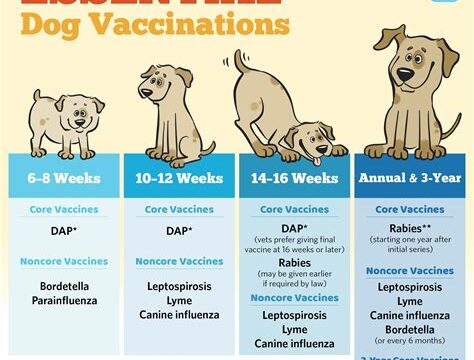As a responsible pet owner, it’s crucial to prioritize the health and wellbeing of your beloved canine companion. From vaccinations to routine care practices, there are several essential aspects to consider when it comes to ensuring the overall health of your dog. In this blog post, we will delve into the key components of canine health essentials, including vaccinations, worming, and routine care. Understanding the importance of vaccinations, different types of vaccines available, and the recommended vaccination schedule for puppies will be explored. We will also discuss common worm-related health issues in dogs, effective worming treatments, and routine care practices for maintaining optimal canine health. In addition, we will cover dietary considerations for promoting overall wellbeing and strategies for promoting mental and emotional wellness in dogs. By prioritizing these essential aspects of canine health, you can help your furry friend live a long, happy, and healthy life.
Understanding the importance of vaccinations
In today’s world, vaccinations have become a hot topic of debate, especially in the context of human health. However, it is equally important to understand the significance of vaccinations in the realm of canine health.
Vaccinations play a crucial role in protecting dogs from various infectious diseases and viruses that can pose serious threats to their health. By administering the right vaccines at the right time, canine owners can effectively shield their pets from potentially life-threatening illnesses.
Moreover, vaccinations also contribute to the overall community health of canine populations by preventing the spread of contagious diseases. By ensuring that our pets are up to date with their vaccinations, we can help create a safer and healthier environment for all dogs.
It is essential for canine owners to understand that vaccinations are not just a matter of personal choice, but a responsibility towards the well-being of their pets and the community at large. Proper awareness and education about the importance of vaccinations can go a long way in ensuring the good health and longevity of our beloved canine companions.
Different types of vaccines for canines
Vaccines are crucial for the health and wellbeing of our furry friends. There are several types of vaccines for canines that are essential for protecting them from various diseases. The core vaccines for dogs include rabies, distemper, parvovirus, and adenovirus. These vaccines are considered essential because they protect dogs from severe and often fatal diseases. Additionally, there are non-core vaccines that are recommended based on a dog’s lifestyle and risk of exposure, such as vaccines for bordetella, leptospirosis, and Lyme disease.
Core vaccines for canines, such as rabies and distemper vaccines, are typically required by law in many areas. Rabies is especially important, as it is transmissible to humans and can be fatal. Distemper, parvovirus, and adenovirus are highly contagious and can cause serious illness in unvaccinated dogs. Non-core vaccines, on the other hand, are recommended for dogs that are at high risk of exposure to certain diseases. For example, bordetella, or kennel cough, is often required for dogs that visit boarding facilities, dog parks, or participate in dog shows.
It’s important for dog owners to work closely with their veterinarians to determine which vaccines are necessary for their pets based on their lifestyle, age, and overall health. Vaccines play a critical role in preventing many common and potentially life-threatening diseases in dogs, so staying up to date on vaccinations is essential for maintaining their health and wellbeing.
Understanding the different types of vaccines for canines and their importance can help dog owners make informed decisions about their pets’ healthcare. By ensuring that dogs receive the appropriate vaccines, owners can help protect their furry companions from a variety of infectious diseases and promote a long and healthy life for their beloved pets.
Recommended vaccination schedule for puppies
When bringing a new puppy into your home, it’s important to ensure they receive the necessary vaccinations to protect them from potentially dangerous diseases. Vaccinations are a key component of your puppy’s overall health and wellbeing, and sticking to a recommended schedule is crucial in keeping them safe.
It’s generally recommended that puppies receive a series of vaccinations starting at around 6-8 weeks of age. The core vaccinations for puppies include those for distemper, parvovirus, hepatitis, and rabies. These are typically administered in a series of three to four doses, with the final dose typically given at around 14-16 weeks of age.
In addition to core vaccinations, there are also non-core vaccinations that may be recommended depending on your geographical location and your puppy’s lifestyle. These may include vaccinations for leptospirosis, Lyme disease, and canine influenza. Your veterinarian can help you determine which non-core vaccinations are necessary for your puppy based on their specific risk factors.
Following the initial series of vaccinations, puppies will also require booster shots to maintain their immunity. These boosters are typically given annually, although some vaccinations may require more frequent boosters. Keeping up with your puppy’s vaccination schedule is crucial in ensuring they stay healthy and protected from preventable diseases.
Common worm-related health issues in dogs
Worms are a common health issue for dogs, especially puppies and older canines. These parasites can cause a range of health problems, including gastrointestinal issues, weight loss, and a weakened immune system. It’s important for dog owners to be aware of the signs and symptoms of worm infestations, as well as the best methods for prevention and treatment.
One of the most common types of worms in dogs is roundworms, which can be transmitted through contact with infected feces or contaminated soil. Roundworm infestations can lead to digestive upset, poor growth, and a dull coat in dogs. Additionally, hookworms and whipworms can cause anemia, diarrhea, and weight loss in canines, making it crucial to address these parasite infestations promptly.
Regular deworming treatments should be a part of every dog owner’s preventative healthcare routine. It’s important to consult with a veterinarian to determine the most effective deworming schedule for your pet, as well as the best treatment options for the specific type of worms your dog may be at risk for. Additionally, maintaining a clean living environment and practicing good hygiene habits can help reduce the risk of worm infestations in dogs.
By staying proactive about preventing and treating worm infestations, dog owners can help ensure their pets stay healthy and happy. Recognizing the signs of worm infestations and taking prompt action to address them is essential for maintaining the overall well-being of our canine companions.
Effective worming treatments for canines
When it comes to keeping our furry friends healthy, preventing and treating worms is an essential part of their care. Worming treatments are crucial in maintaining the overall wellbeing of canines, as worms can cause a range of health issues if left untreated.
There are various worming treatments available for canines, such as oral medications, spot-on treatments, and injections. It’s important to consult with a veterinarian to determine the most suitable treatment for your furry friend, as the choice may depend on factors such as the dog’s age, breed, and overall health status.
In addition to regular treatments, it is also important to practice good hygiene and cleanliness in the dog’s environment. This includes regularly cleaning up pet waste and preventing the dog from coming into contact with contaminated soil or feces from other animals.
Overall, by staying proactive with worming treatments and maintaining a clean living environment, we can ensure the optimal health and wellbeing of our beloved canine companions.
Routine care practices for maintaining canine health
Regular exercise is essential for maintaining the overall health and wellbeing of your canine companion. Daily walks, playtime, and other physical activities are important for keeping dogs in good shape and preventing obesity, which can lead to a range of health problems.
Another important routine care practice for maintaining canine health is regular grooming. This includes brushing their coat, trimming their nails, cleaning their ears, and bathing them when necessary. Proper grooming not only keeps your dog looking and smelling good, but it also helps to prevent skin infections and other issues.
Proper nutrition is crucial for ensuring that your dog stays healthy. This includes feeding them a balanced diet that meets their nutritional needs and providing access to clean, fresh water at all times. It’s also important to avoid overfeeding and to monitor your dog’s weight to prevent obesity.
Regular vet check-ups are another essential routine care practice for maintaining canine health. By taking your dog to the vet for regular exams and vaccinations, you can help to catch any potential health issues early and ensure that they are up to date on necessary vaccinations to protect them against common diseases.
Dietary considerations for optimal canine wellbeing
When it comes to ensuring the overall health and wellbeing of your beloved canine companion, dietary considerations play a crucial role. A balanced and nutritious diet is essential for maintaining optimal health and promoting longevity in dogs. It is important to understand the specific dietary needs of dogs and make informed choices when it comes to their nutrition.
One of the most important dietary considerations for dogs is the quality of the food they consume. High-quality dog food that is made from wholesome, natural ingredients is essential for meeting their nutritional requirements. Avoiding cheap fillers, artificial additives, and harmful preservatives is key to ensuring the wellbeing of your dog.
In addition to the quality of the food, the type and quantity of food are also crucial considerations. Different dogs have different nutritional needs based on factors such as their age, size, breed, and activity level. It is important to consult with a veterinarian or a canine nutritionist to determine the optimal diet for your dog based on their specific needs.
Furthermore, paying attention to the ingredients in your dog’s food is important. Some dogs may have food sensitivities or allergies to certain ingredients, so it’s important to be mindful of what you are feeding them. Additionally, providing a variety of nutritious foods and incorporating supplements such as omega-3 fatty acids can contribute to their overall wellbeing.
Promoting mental and emotional wellness in dogs
Dogs, just like humans, can experience a range of mental and emotional challenges. It’s important for pet owners to prioritize their furry friends’ mental and emotional wellness in order to ensure they lead happy and fulfilling lives.
Exercise plays a vital role in promoting mental and emotional wellness in dogs. Regular physical activity can help reduce stress, anxiety, and destructive behavior. It also provides an opportunity for mental stimulation, which is crucial for a dog’s overall well-being.
In addition to exercise, socialization is another important aspect of promoting mental and emotional wellness in dogs. Interacting with other dogs and humans can help reduce fear and aggression, as well as prevent isolation and loneliness.
Providing mental stimulation through interactive toys, puzzle games, and training activities can also contribute to a dog’s mental and emotional wellness. These activities help keep their minds sharp and provide a sense of accomplishment, boosting their overall happiness.





